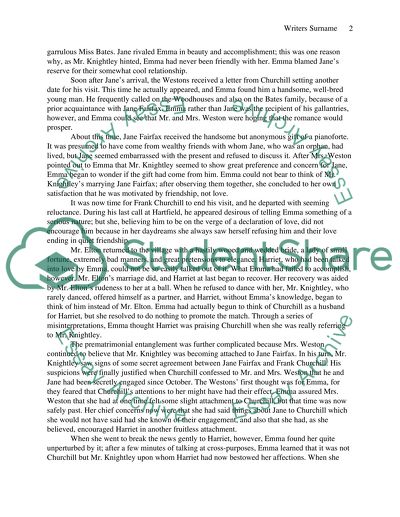Cite this document
(“Emma by Jane Austen Essay Example | Topics and Well Written Essays - 1250 words - 1”, n.d.)
Retrieved from https://studentshare.org/literature/1503568-emma-by-jane-austen
Retrieved from https://studentshare.org/literature/1503568-emma-by-jane-austen
(Emma by Jane Austen Essay Example | Topics and Well Written Essays - 1250 Words - 1)
https://studentshare.org/literature/1503568-emma-by-jane-austen.
https://studentshare.org/literature/1503568-emma-by-jane-austen.
“Emma by Jane Austen Essay Example | Topics and Well Written Essays - 1250 Words - 1”, n.d. https://studentshare.org/literature/1503568-emma-by-jane-austen.


